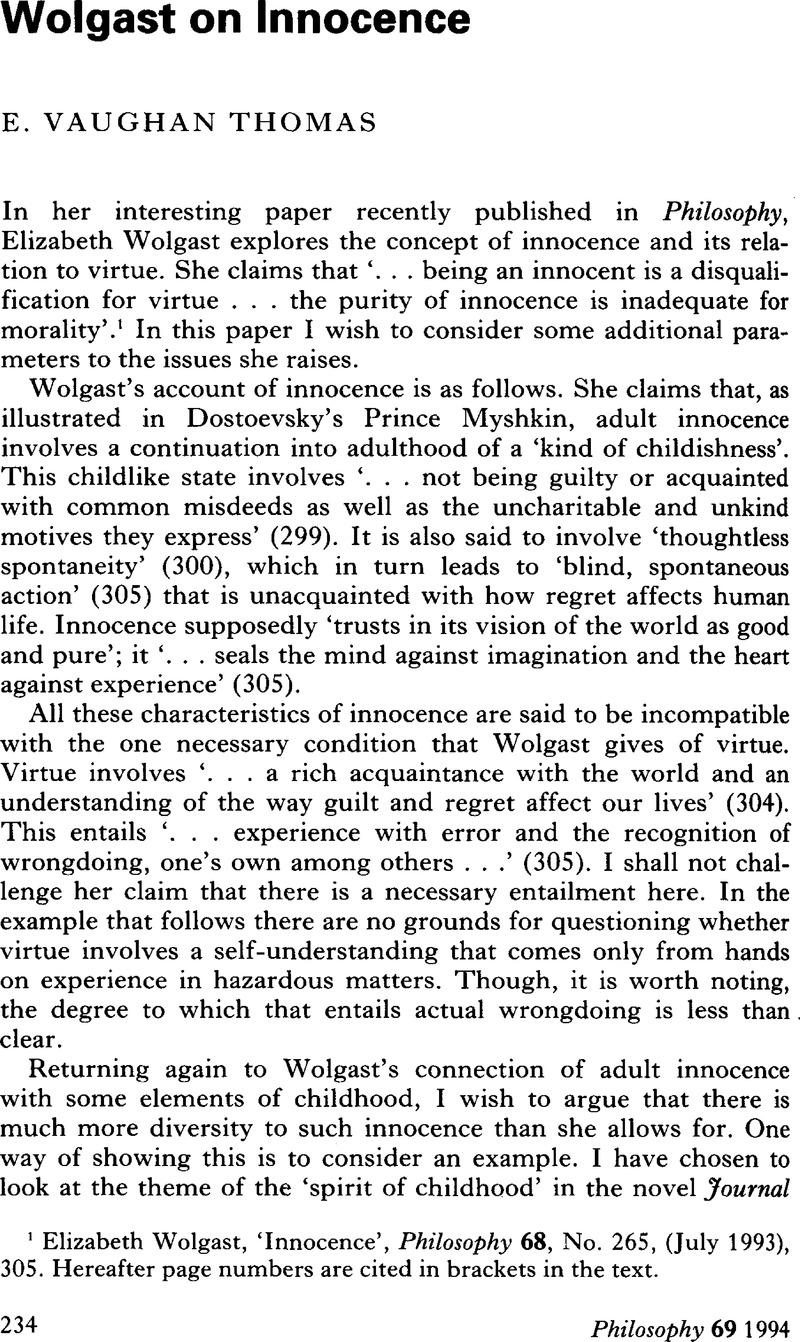No CrossRef data available.
Article contents
Wolgast on Innocence
Published online by Cambridge University Press: 30 January 2009
Abstract

- Type
- Discussion
- Information
- Copyright
- Copyright © The Royal Institute of Philosophy 1994
References
1 Elizabeth, Wolgast, ‘Innocence’, Philosophy 68, No. 265, (July 1993), 305. Hereafter page numbers are cited in brackets in the text.Google Scholar
2 Georges Bernanos, Journal d′un cure de campagne. Quotations are taken from the English edition entitled The Diary of a Country Priest, translated by Pamela Morris (London: Fontana, 1956).
3 I am not claiming that metaphysics should necessarily be seen as unconnected with all forms of virtue found in religious life that emphasises renouncing the self. Some Wittgensteinians make the mistake of holding that a right appreciation of self-renunciation involves a recognition of its logical incompatibility with any possible form of metaphysics. I criticize this assumption in my papers ‘D. Z. Phillips and Religious Belief as Perspective on Life’, Scottish Journal of Religious Studies 14, No. 2 (Autumn 1993), and ‘Phillips, D. Z., Self-Renunciation and the Finality of Death’, Religious Studies 28, No.4, (December 1992).Google Scholar


